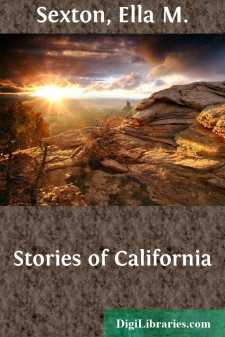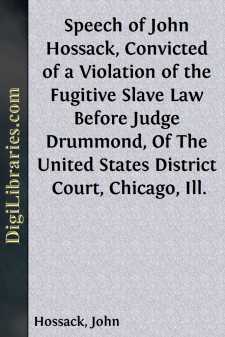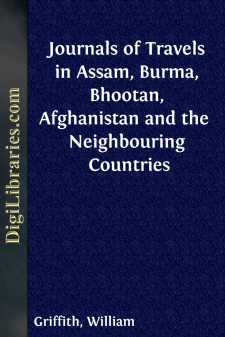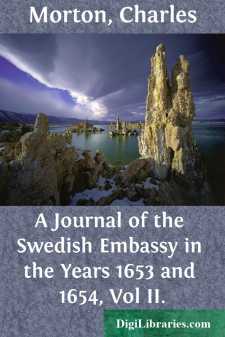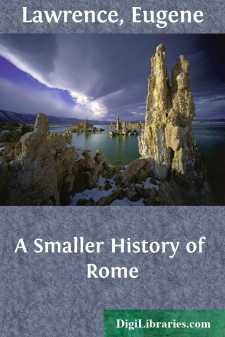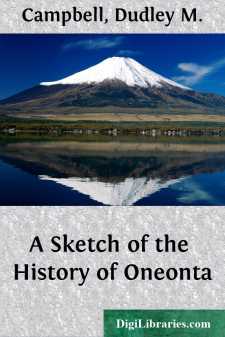History
- Africa 30
- Americas (North Central South West Indies) 50
- Ancient 68
- Asia 58
- Australia & New Zealand 8
- Canada 41
- Caribbean & West Indies 1
- Civilization 20
- Eastern Europe 12
- Europe 310
- Expeditions & Discoveries 60
- General 77
- Historical Geography 1
- Jewish 9
- Latin America 3
- Medieval 8
- Middle East 13
- Military 248
- Revolutionary 8
- Study & Teaching 5
- United States 353
- Western Europe 56
- World 13
History Books
Sort by:
by:
Ella M. Sexton
CALIFORNIA'S NAME AND EARLY HISTORY A Spanish story written four hundred years ago speaks of California as an island rich in pearls and gold. Only black women lived there, the story says, and they had golden spears, and collars and harness of gold for the wild beasts which they had tamed to ride upon. This island was said to be at a ten days' journey from Mexico, and was supposed to lie...
more...
by:
John Hossack
SPEECH OF JOHN HOSSACK. [At the February term of the U.S. District Court for the Northern District of Illinois, JOHN HOSSACK and JOSEPH STOUT, of Ottawa, were convicted of having aided in rescuing a fugitive slave from the custody of the U.S. Deputy Marshal at Ottawa, Oct. 20, 1859, and sentenced by Judge Drummond to pay a fine of one hundred dollars, and be imprisoned ten days. Mr. HOSSACK is a...
more...
Source.—Tasman's Journal (edited by Heeres), pp. 1, 11-16 The Spaniard Torres was probably the first European to sight Australia (Cape Yorke); but Tasman was the first who consciously discovered the Great South Land. In his search for fresh fields for trade, he came upon Tasmania and New Zealand. Journal or description drawn up by me, ABEL JAN TASMAN, of a Voyage made from the town of Batavia in...
more...
CHAPTER I THE CONTINENT IN PRE-SPANISH DAYS The discovery of South America stands as one of the most dramatic events in history. From the time of its occurrence until the present so deeply has this event impressed itself on men's minds that the previous state of the Continent has been a somewhat neglected topic. The Incas and their civilization, it is true, have attracted no small share of...
more...
NONOWIT'S HOME Long before New Hampshire found its name, the deep river at its southeast was known as the Piscataqua by the Indians who could stem its strong currents, even in bark canoes. Perhaps it was because of the fresh spring close to its salty shores, some three miles from the sea, that the red men made their encampment on the spot that was later equally attractive to men of white skins....
more...
by:
William Griffith
NOTICE OF WILLIAM GRIFFITH, from the Proceedings of the Linnæan Society, with a few extracts from his private correspondence. “WILLIAM GRIFFITH, Esq., the youngest son of the late Thomas Griffith, was born on the 4th of March 1810, at his father’s residence at Ham Common, near Kingston-upon-Thames, in the county of Surrey. “He was educated for the Medical profession, and completed his studies at...
more...
by:
Charles Morton
March 1, 1653. Whitelocke continues the negotiation. Now was the heat of Whitelocke’s business, and many cross endeavours used to render all his labours fruitless, and to bring his treaty to no effect. But it pleased God, in whom his confidence was placed, to carry him through all his difficulties, and to give his blessing and success to this negotiation. Whitelocke gave a visit to the Count de...
more...
by:
Hugh Gibson
INTRODUCTION This volume is not a carefully prepared treatise on the war. It does not set out to prove anything. It is merely what its title indicates—a private journal jotted down hastily from day to day in odd moments, when more pressing duties would permit. Much material has been eliminated as of little interest. Other material of interest has been left out because it cannot be published at this...
more...
by:
Eugene Lawrence
CHAPTER I. GEOGRAPHY OF ITALY—EARLY INHABITANTS. Italy is the central one of the three great peninsulas which project from the south of Europe into the Mediterranean Sea. It is bounded on the north by the chain of the Alps, which form a natural barrier, and it is surrounded on other sides by the sea. Its shores are washed on the west by the "Mare Inferum," or the Lower Sea, and on the east by...
more...
CHAPTER I. The territory comprised within the present boundaries of the town of Oneonta, previous to the war of the Revolution, was little known except as the scene of many a sanguinary conflict between different Indian tribes which contended with each other for its possession. The Delawares, whose home was on the river bearing their name, had been in peaceful possession of the upper Susquehanna valley...
more...


